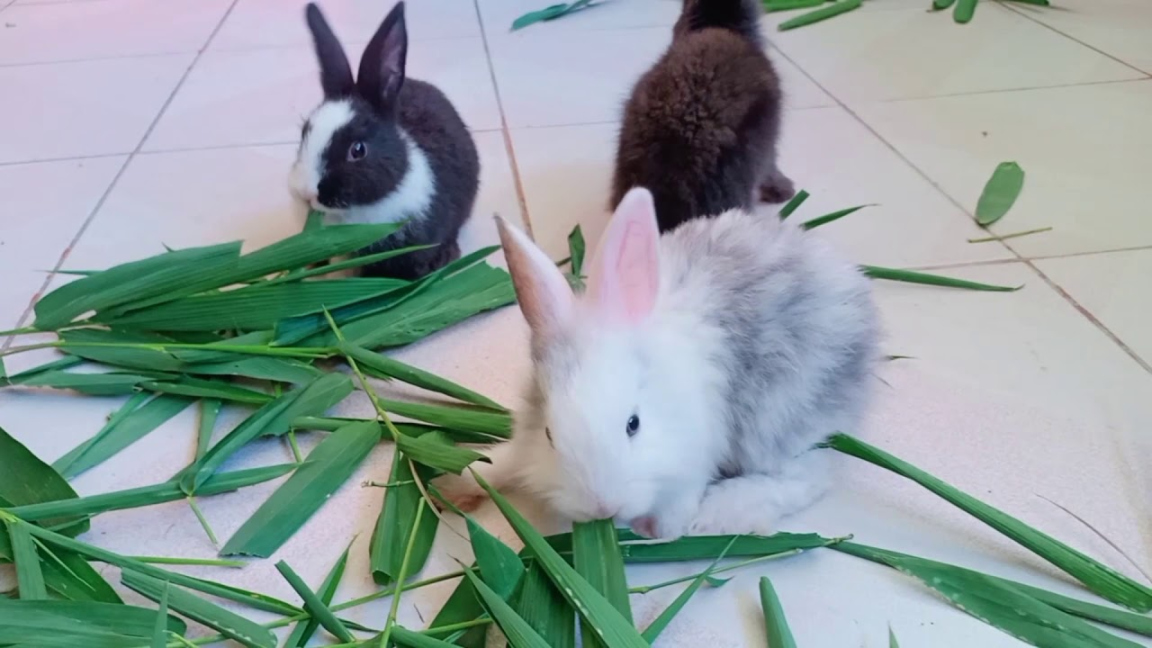Can Rabbit Eat Bamboo Leaves?
Bamboo leaves are a popular food source for many animals, including pandas. But what about rabbits? Can they safely consume bamboo leaves as part of their diet? Let’s explore this question and find out whether bamboo leaves are suitable for rabbits.

1. Nutritional Value of Bamboo Leaves
Bamboo leaves are rich in nutrients and contain various vitamins and minerals that can benefit the overall health of animals. They are a good source of fiber, which aids in digestion and helps prevent gastrointestinal disorders. Additionally, bamboo leaves contain antioxidants that support the immune system and protect against free radicals.
2. Can Rabbits Eat Bamboo Leaves?
Yes, rabbits can eat bamboo leaves. In fact, bamboo leaves are safe for rabbits to consume and can be a healthy addition to their diet. However, it’s important to note that bamboo leaves should only be given to rabbits in moderation, as excessive consumption may lead to digestive issues.
3. Benefits of Bamboo Leaves for Rabbits
There are several benefits of feeding bamboo leaves to rabbits:
- Fiber: Bamboo leaves are high in fiber, which promotes healthy digestion and helps prevent gastrointestinal problems in rabbits.
- Nutrients: Bamboo leaves are packed with vitamins and minerals that contribute to the overall well-being of rabbits, supporting their immune system and maintaining healthy bones and teeth.
- Enrichment: Offering bamboo leaves as part of a varied diet can provide mental stimulation and enrichment for rabbits, making mealtime more interesting and enjoyable.
4. Precautions When Feeding Bamboo Leaves to Rabbits
While bamboo leaves are generally safe for rabbits, there are a few precautions to keep in mind:
- Moderation: As mentioned earlier, bamboo leaves should only be given to rabbits in moderation. Too many bamboo leaves can lead to digestive issues, such as bloating or diarrhea.
- Organic and Fresh: It’s crucial to ensure that the bamboo leaves you offer to your rabbits are organic and free from pesticides or harmful chemicals. Also, make sure they are fresh and not spoiled.
- Introduction: If you’re introducing bamboo leaves to your rabbit’s diet for the first time, it’s recommended to start with a small amount and observe how your rabbit reacts. Some rabbits may have sensitivities or allergies to certain foods, including bamboo leaves.
Tip: It’s always a good idea to consult with a veterinarian before making any significant changes to your rabbit’s diet, including the introduction of new foods like bamboo leaves.
Frequently Asked Questions (FAQs)
1. Can rabbits eat bamboo shoots?
Yes, rabbits can eat bamboo shoots. Bamboo shoots are tender and have a different texture than bamboo leaves, making them an occasional treat for rabbits. However, like bamboo leaves, they should be given in moderation to prevent digestive issues.
2. Can bamboo leaves be the primary diet for rabbits?
No, bamboo leaves should not be the primary diet for rabbits. While they provide nutritional benefits, rabbits require a balanced diet that includes a variety of hay, fresh vegetables, and pellets. Bamboo leaves can be offered as a supplement to their regular diet.
3. How should bamboo leaves be prepared for rabbits?
Bamboo leaves should be thoroughly washed to remove any dirt or contaminants before offering them to rabbits. It’s advisable to cut the leaves into smaller, bite-sized pieces to make it easier for rabbits to eat and digest.
4. Can rabbits eat all types of bamboo leaves?
Not all types of bamboo leaves are safe for rabbits. Some species of bamboo contain toxins that can be harmful to rabbits and other animals. It’s essential to identify the specific type of bamboo leaves and ensure their safety before feeding them to your rabbit.
In conclusion, rabbits can indeed eat bamboo leaves. These leaves provide essential nutrients, fiber, and enrichment for rabbits, but they should be given in moderation and as part of a balanced diet. Always consult with a veterinarian for specific dietary recommendations and to ensure the safety of any new foods you introduce to your rabbit.
Related Articles…
Copyright Notice:
All images featured on this site are sourced from the internet, copyrights belong to respective owners. Should you own any image and require it to be removed, please contact us.